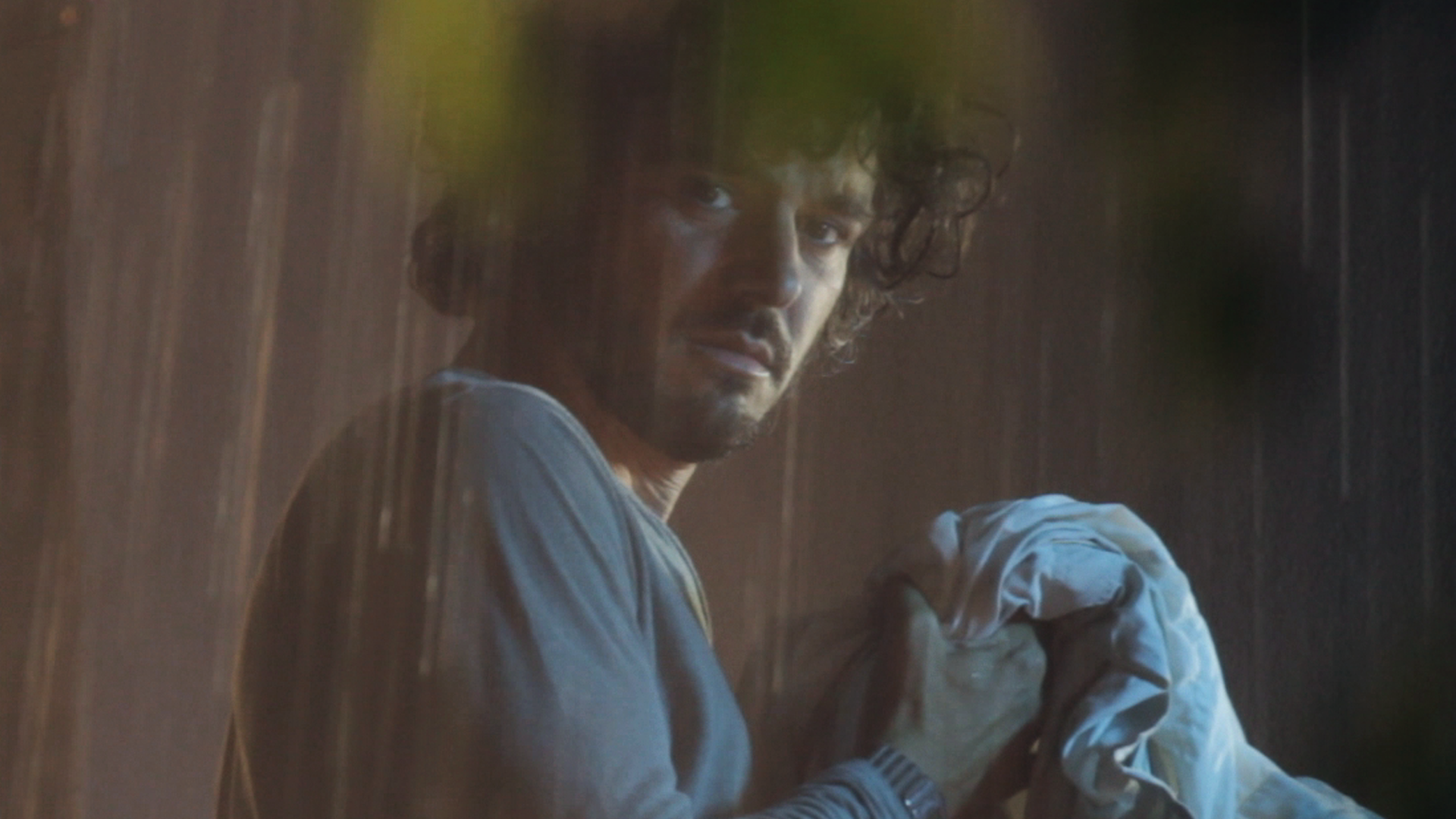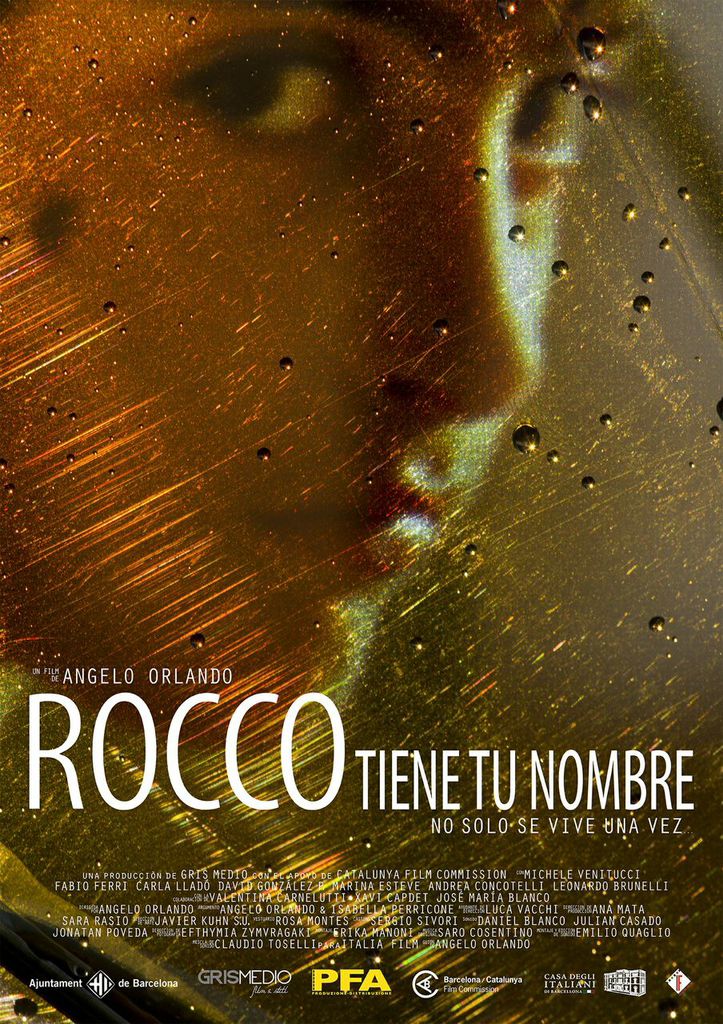It’s a normal day like so many others in Bobo Benso’s life; with its little – big discomforts. But this time, something breaks the routine: a stranger has just moved into his house. He rides his motorbike and shows up at work.
He hangs out with his friends and goes out with his girlfriend Estrella; he says his name is Rocco. Bobo gradually discovers that he has been invaded, excluded, evicted from his own life, that he no longer belongs to it. He is now in no man’s land.
Original title: Rocco tiene tu nombre
Internacional title: Rocco has your name
Genre: Dramatic
Running time: 75 min
Shhotin format: 2K
Screening format: DCP Color 2K
Country of production: Spain
Original language: Spanish, Catalan, Italian
Subtitles: English
Production compamy: Gris Medio
Year of production: 2014
Release date: 2015
Color: Color
Aspect ratio: 1:85
Sound: Dolby 5.1
Childhood, the child’s gaze that is lost with time and the courage to undertake a journey to the roots of that which is the first affective wound, are the gravitational core of this story, a small metropolitan fable of our times. The protagonist, in fact, like many children, had an imaginary friend as a child.
Children often do this: they create a playmate, they take him out of the marvellous world of their fantasy, to get rid of all those emotional tensions and small-big worries that are part of their everyday life.
Often the imaginary friend appears when the world around the child changes or when the child is spending a lot of time alone. Then the friend who appears in his visions, gives him a hand, is his confidant, his accomplice and creates comfort and reassurance.
The imaginary friend usually disappears into nothingness on its own, with time, without the need for a psychologist, but what if one day, this friend were to return, what would this return represent, is it just a reappearance or a reunion with something lost?
The lights go out, mum has pulled the blankets over us, kissed us goodnight. Suddenly, it’s dark and there’s only that crack of light coming from the other side of the house. “Who doesn’t remember not having asked this question? We are left alone: noises, creaking, an improvised solitude that has nothing existential about it, so melancholic, undeserved. But he arrives, our imaginary friend. And he saves us.
How many times in our adult lives have we not felt this fragile? How many times have we not felt as lonely as that child who throws a ball against the wall or plays alone with his game-boy? How many times have we pretended not to recognise this need for contact? The lack of companions, the loneliness of a child generates urgency, casts a shadow on others: a shadow to confide in; a specular double to whom it is not necessary to say anything. He already knows. This is exactly what we are afraid to do when we grow up, because unfortunately, an adult cannot afford to have an imaginary friend. Apart from Roberto Benso, called Bobo by his friends. Bobo Benso had an imaginary friend when he was a child: his name was Rocco. Now Bobo Benso is thirty-eight years old and his life no longer belongs to him. Rocco stole it from him.
The break-up with his emotional partner, Estrella, sends him into a wandering of memories and awakens the old friend, who replaces him in his life. Roberto is now devoid of all the material things that defined his identity. The city thus becomes his initiatory journey, a spiritual pilgrimage, where the imaginary and the real meet.



